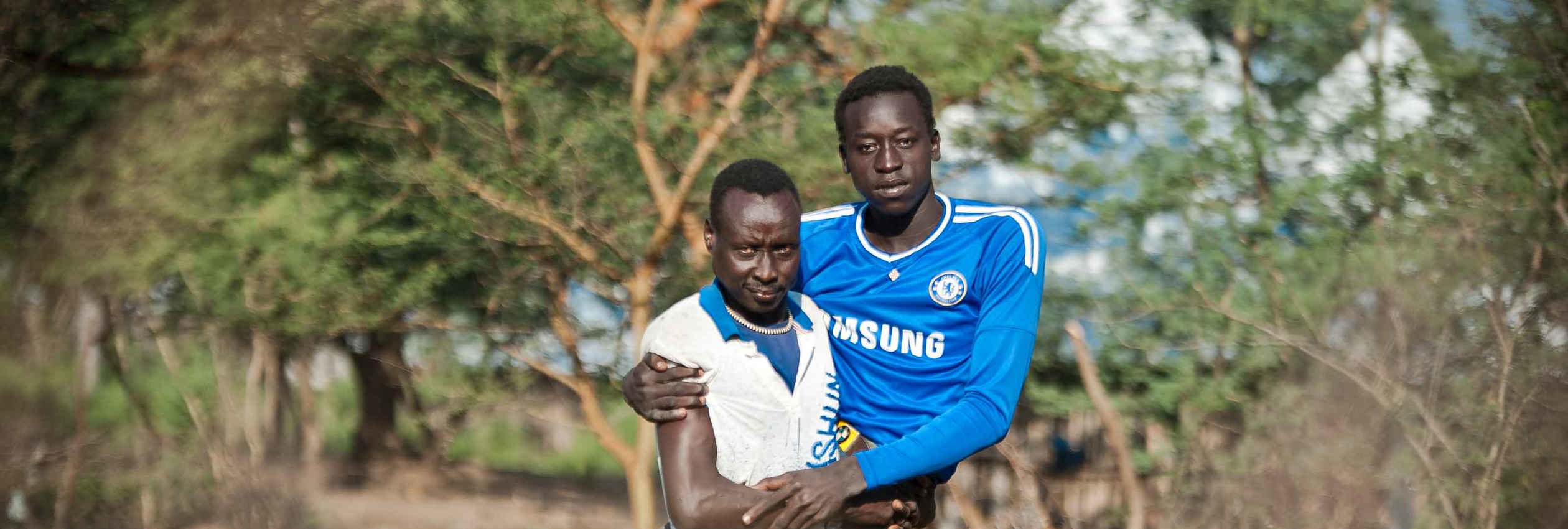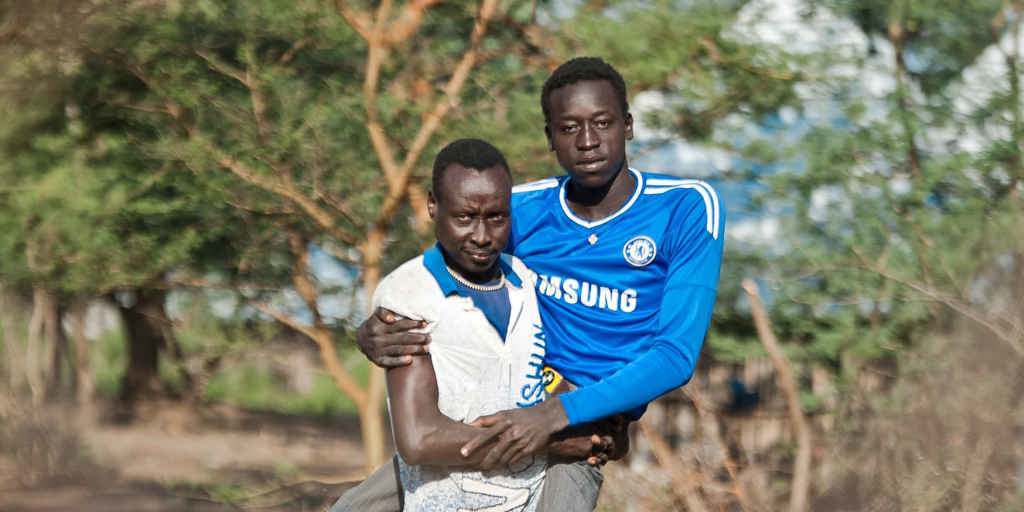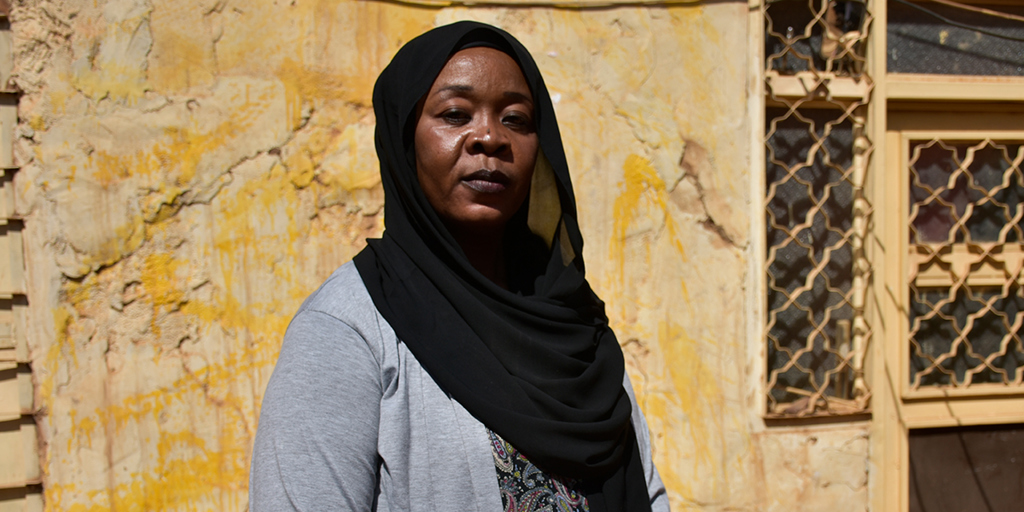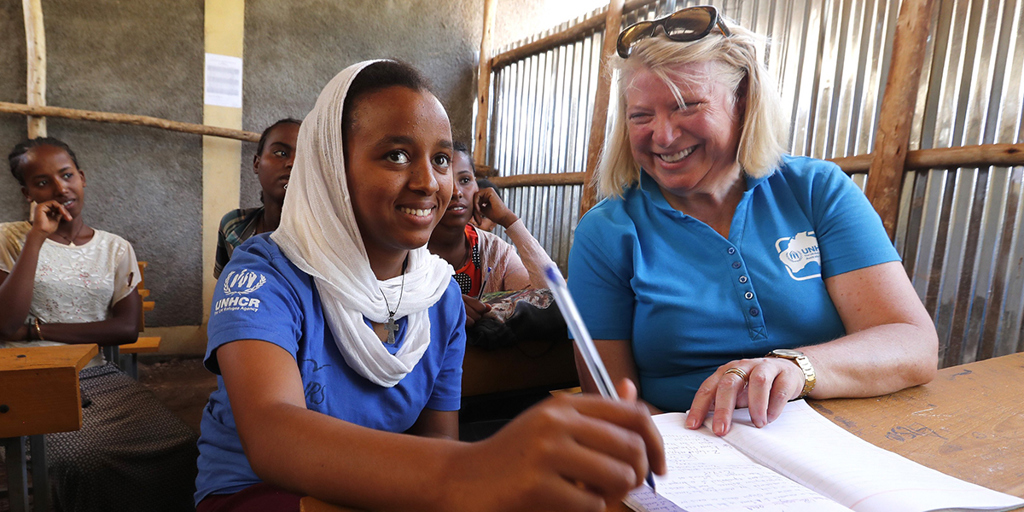South Sudan Refugees Dak and Muon
“That day I didn’t think of picking up my wallet, my shoes or anything else,” says Dak, 50. “I just thought about saving my brother.”
That day, Christmas Eve 2013, everyone else ran as fast as they could to the nearest UN compound. But Dak slung his brother on his back and ran through town in search of a safe hiding place.
In the fray, Dak lost sight of his wife and five children. All around them, people were being shot. Among those killed was their youngest brother.
“We couldn’t stop—we knew he was dead and that the soldiers wanted everyone dead.”
Dak carried Muon for 17 days with only scant wild fruits and water from dirty rivers to sustain them.
“My whole body hurt. I had pain from the carrying when I rested.” Muon felt like he was being a burden, despite Dak’s efforts to hide his exhaustion.
“I told him to go and leave me. But he would say: 'I can’t leave you. Yes, I’m tired, but if we die, we die together'.”
Muon resolved to help his brother the only way he could think of – by being a good watchman. Once he spotted a lion just in time to save them both from being attacked.
Finally, the two brothers reached the safety of UNHCR’s Tierkidi refugee camp in Ethiopia’s Gambella region.
“I was so sick when I got here,” says Dak. “When I coughed, there was blood, and although I’ve been to hospital, I’m still not well.”
But despite his fragile physical condition, Dak is again focussed on family responsibilities—he was reunited with his wife and children in the camp.
“The first time I saw them I was so happy.”
Dak would like to do some farming to ensure for a brighter future for his children and brother.
Muon dreams of becoming a doctor to stop others suffering from the disease that caused him to lose the use of his legs at age three. He’s determined to study hard to help Dak, who left school to help pay for his siblings’ education.
But the wheelchair he uses to get to school is breaking on the refugee camp’s rough paths.
“Without a wheelchair I would just exhaust my brother again from the carrying, so I would stop school and stay at home,” he says.
UNHCR and its partners offer special support to people with disabilities, like Dak, in addition to providing shelter, water, food and other vital services for many thousands of South Sudanese refugees.
Help UNHCR support those fleeing conflict in South Sudan.

















 South Sudan
South Sudan



